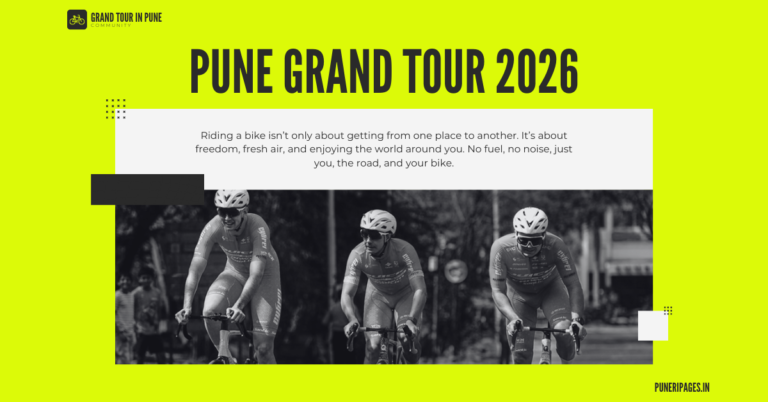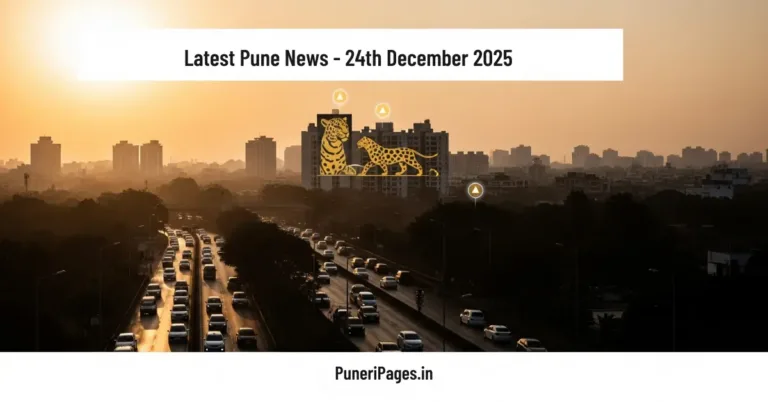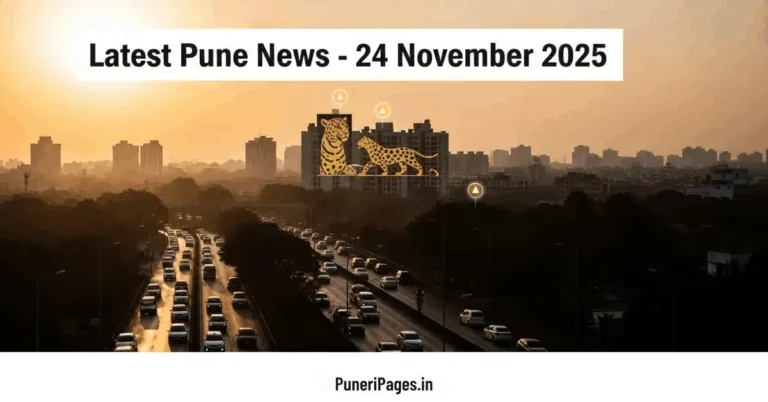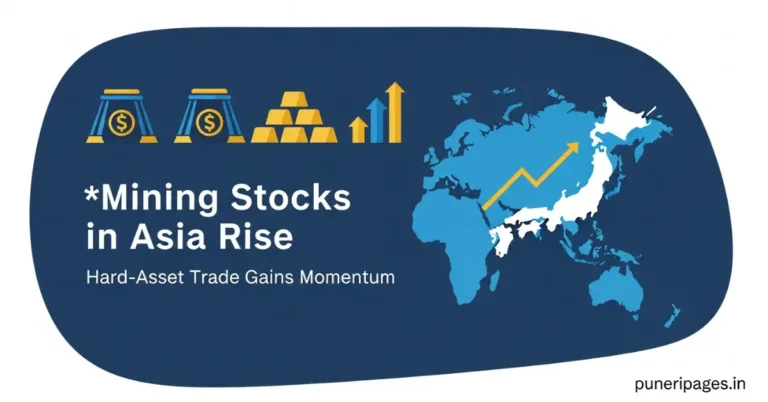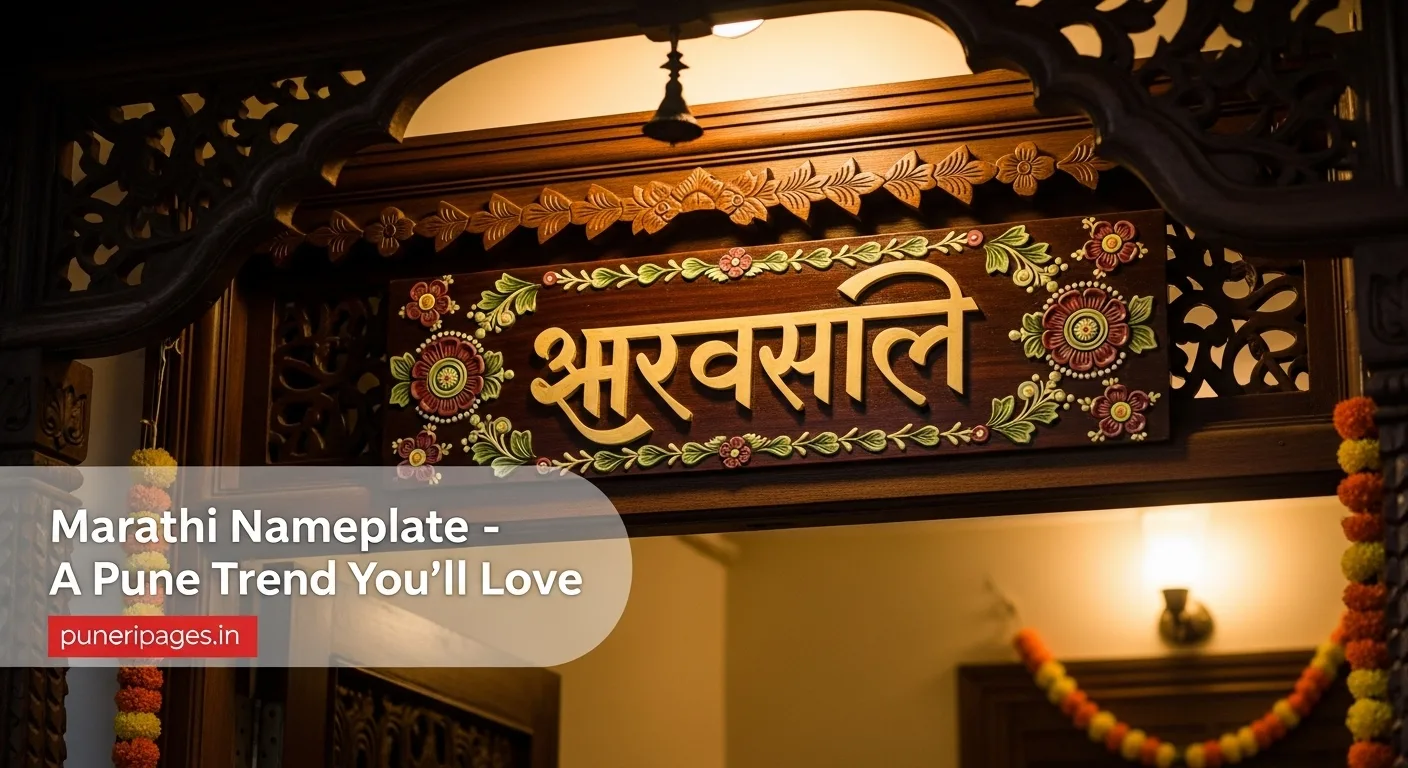
Marathi nameplates are more than decor — they reflect culture and identity in Pune homes and shops.
By Prashant for PuneriPages.in
In a city where signs and boards reflect every shade of our identity, a new political storm is brewing. The Maharashtra Navnirman Sena (MNS) is once again at the centre — this time, pushing hard for Marathi nameplates on shops and commercial establishments. Sounds familiar? That’s because this isn’t the first time MNS has made headlines over language and identity. But this time, there’s a twist — the issue is clashing with another very real and practical concern: the Occupancy Certificate (OC).
Let’s break this down, the way a friend would explain it to you over a cup of cutting chai.
Table of Contents
What’s This OC Issue Everyone’s Talking About?
First, quick context. An Occupancy Certificate (OC) is a document issued by the civic body — in this case, the Pune Municipal Corporation (PMC) — that basically says: “Yes, this building is complete and safe to use.” Without an OC, technically, commercial shops can’t legally operate.
So what’s happening? Builders are applying for OC, but the PMC is asking them: “Are your shopkeepers following rules like displaying Marathi nameplates?” If the answer is no, OC can get delayed. Which means, shops stay unofficial, even if they’re fully built. And no OC means no electricity, water connections, or legal backing.
It’s become a tug-of-war between PMC, builders, and shop owners. And into that tug, MNS has jumped in.
Why MNS Is So Focused on Marathi Boards
This isn’t new. Raj Thackeray’s party has long positioned itself as a champion of Marathi pride and local identity. In their view, using Marathi in public-facing signs — like shop boards — is not just respectful, it’s necessary.
They argue that shopkeepers doing business in Maharashtra must use Marathi, especially when dealing with local customers. Fair point — but this time, they’re putting extra pressure, even threatening action if shops don’t comply.
Their supporters say: “If you’re earning here, you should respect the local culture.”
But critics argue: “What about shopkeepers who already struggle with rising costs? Should language compliance be a condition for OC?”
What Are Builders and Shopkeepers Saying?
Many builders are stuck in the middle. They’re ready to hand over possession, but can’t because OC is held up. Shop owners, on the other hand, say they’re being forced to change signage or face issues.
A few even put it bluntly: “We have no problem using Marathi, but don’t hold our OC hostage.”
Some builders are asking the PMC to issue OC first and give time to comply with signage rules later. But so far, there’s no consensus.
Can PMC Legally Withhold OC Over Language?
This is the big legal question. As per current laws, there’s no clear mandate that says OC can only be granted if signage is in Marathi. However, local bodies sometimes include such conditions in their NOCs (No Objection Certificates) or rules for compliance.
Legal experts say this could be challenged in court. Because the right to operate a shop shouldn’t depend on what language your board is in — at least not as per building laws.
But politically? It’s a different game.
What This Means for You (Especially If You’re a Business Owner)
If you run a shop or commercial space in Pune, here’s what to know:
- Marathi boards are being pushed aggressively. Expect action if your signage doesn’t include Marathi.
- OC can get delayed or stuck. Especially if the builder or PMC raises the issue of language compliance.
- It’s smart to stay ahead. Adding Marathi text to your board might save you future trouble — even if legally it’s debatable.
Also, keep an eye on updates from PMC or any changes in guidelines. Things are moving fast.
Conclusion: A Mix of Identity, Politics, and Paperwork
At the heart of this issue is something deeper — who gets to define public identity in a diverse city like Pune? Language is a part of that identity, but so are legal rights, builder-shopkeeper relations, and politics.
Whether you agree with MNS or not, this push for Marathi nameplates is already affecting how business gets done. It’s a reminder that in India, even a signboard isn’t just a sign — it’s a statement.
Stay aware. And maybe update that board.
Written by someone who walks these very Pune streets and reads every shop sign with curiosity.
